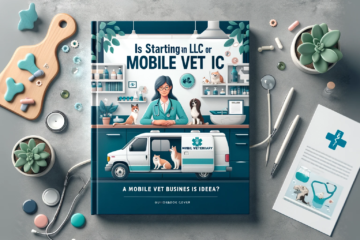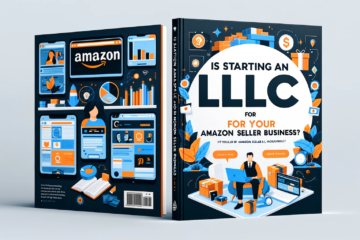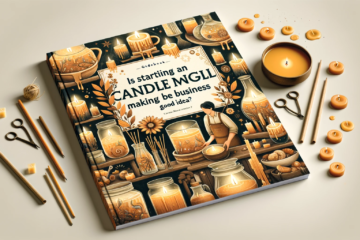Are you ready to turn your passion for art into a thriving business?
Starting an LLC for art consulting is the perfect way to share your expertise and help others navigate the intricate world of art.
In this article, we’ll guide you through the essential steps, from choosing the right business structure to building your clientele.
Get ready to embark on a creative journey that combines your love for art with entrepreneurial success.
Let’s dive in!
Limited liability company (LLC) provides limited liability protection and flexibility in taxation. Developing a solid business plan is crucial for the success of an art consulting LLC. Registering the LLC and obtaining necessary licenses and permits is essential for legal compliance. Building a strong clientele through networking, online presence, and referrals is vital for growth and sustainability.
Choosing the Right Business Structure
When starting your LLC for art consulting, you need to choose the right business structure. The business structure you select will have significant implications for your tax obligations and legal responsibilities. There are several business structure options to consider, each with its own advantages and disadvantages.
One common business structure for art consulting is a limited liability company (LLC). An LLC provides limited liability protection, which means that your personal assets are separate from your business assets. This can be particularly important in the art consulting industry, where potential risks and liabilities may arise. Additionally, an LLC offers flexibility in terms of taxation. By default, an LLC is considered a pass-through entity, meaning that the profits and losses of the business are passed through to the owners’ personal tax returns. This can result in potential tax advantages, as the income is only taxed once.
Another option to consider is a sole proprietorship, which is the simplest and most common business structure. However, it doesn’t provide limited liability protection, and the business and personal assets are considered one entity. This means that you could be personally liable for any debts or legal issues that arise. On the other hand, a sole proprietorship has the advantage of simplicity and doesn’t require any formal registration or filing fees.
A third option is a partnership, which is similar to a sole proprietorship but involves two or more individuals sharing the responsibilities and profits of the business. Like a sole proprietorship, a partnership doesn’t offer limited liability protection. However, partnerships have the advantage of allowing multiple individuals to contribute their expertise and resources to the business.
When choosing the right business structure for your art consulting LLC, it’s crucial to consider the tax implications and legal responsibilities. Consulting with a business attorney or tax professional can help you make an informed decision based on your specific circumstances. By selecting the most suitable business structure, you can position your art consulting LLC for success while minimizing potential risks and maximizing tax benefits.
Developing a Solid Business Plan
To effectively establish your LLC for art consulting, you should begin by developing a solid business plan that outlines your goals and strategies. A well-crafted business plan serves as a roadmap for your company, helping you stay focused and organized as you navigate the art consulting industry.
One important aspect of your business plan is creating a marketing strategy. This involves identifying your target market and developing strategies to reach and attract clients. Consider the unique selling points of your art consulting services and how you can effectively communicate these to potential clients. Utilize online platforms and social media to showcase your expertise and build a strong online presence.
Establishing partnerships is another key component of your business plan. Collaborating with artists, galleries, and other art professionals can expand your network and provide opportunities for growth. Seek out partnerships that align with your brand and values, and consider how these collaborations can benefit both parties involved.
A solid business plan not only helps you stay on track but also serves as a valuable tool when seeking funding or investors. It demonstrates your commitment and vision for your art consulting business and lays the groundwork for future success. Take the time to carefully craft your business plan, and regularly review and update it as your business evolves.
Registering Your LLC and Obtaining Licenses
Once you have developed a solid business plan for your art consulting LLC, the next step is to register your company and obtain the necessary licenses.
Registering your LLC is a crucial step in establishing the legal identity of your business. It ensures that you’re recognized as a separate entity from yourself and provides a level of protection for your personal assets. To register your LLC, you’ll need to file the necessary paperwork with the appropriate state agency. This typically involves filling out an application, paying a fee, and providing information about your business.
Once your LLC is registered, you can move on to obtaining the necessary licenses and permits. Depending on the specific services you plan to offer, you may need to obtain permits or licenses from local or state authorities. These permits ensure that you’re operating within the legal bounds of your industry and comply with any regulations or restrictions.
Additionally, it’s important to understand your tax obligations as an LLC. Consult with a tax professional to ensure that you’re meeting all of your tax requirements and keeping accurate records of your income and expenses.
Building Your Art Consulting Clientele
To build your art consulting clientele, you can start by networking with local galleries and attending art events. Networking events provide the perfect opportunity to meet artists, collectors, and other professionals in the art industry. It’s a chance to showcase your expertise and establish meaningful connections. Engage in conversations, exchange business cards, and follow up with potential clients.
Attending art events is also crucial for expanding your network. By immersing yourself in the art scene, you can gain valuable insights into current trends and artists, which will enhance your ability to provide informed recommendations to your clients.
Another effective strategy for building your clientele is to implement targeted marketing strategies. Create a professional website that showcases your services, expertise, and past projects. Utilize social media platforms to share valuable content, such as articles, interviews, and case studies that demonstrate your knowledge and passion for art consulting. Consider hosting workshops or giving talks at local art organizations to establish yourself as an expert in the field.
Additionally, don’t underestimate the power of word-of-mouth marketing. Encourage your satisfied clients to refer you to their friends, colleagues, and contacts. Offering incentives, such as discounts or referral bonuses, can further motivate them to spread the word about your services.
Navigating Legal and Financial Considerations
To ensure the success of your art consulting business, it’s essential to navigate the legal and financial considerations involved in starting an LLC.
One of the key aspects you need to address is understanding the tax implications of forming an LLC. While an LLC provides flexibility in terms of tax treatment, it’s crucial to consult with a tax professional to determine the best approach for your specific situation. They can guide you on whether to opt for pass-through taxation or elect to be treated as a corporation for tax purposes.
Additionally, you need to consider the insurance requirements for your art consulting business. Insurance coverage is crucial for protecting your business from potential liabilities and risks. Depending on the nature of your consulting services, you may need professional liability insurance, which can protect you in case of errors, omissions, or negligence in your advice or recommendations. General liability insurance is also important to cover any accidents or damages that may occur during client visits or events.
Conclusion
Congratulations on taking the first steps towards starting your LLC for art consulting!
By carefully choosing the right business structure, developing a solid business plan, registering your LLC, and building your clientele, you have set yourself up for success in this exciting industry.
Remember to navigate legal and financial considerations with diligence.
With your creativity, knowledge, and analytical skills, you’re well-equipped to thrive in the world of art consulting.
Good luck on your journey!
Frequently Asked Questions
How Much Experience Do I Need in the Art Industry to Start an LLC for Art Consulting?
To start an LLC for art consulting, you’ll need experience in the art industry. The level of experience required will depend on your specific goals and the clients you wish to attract. Developing strong skills in art analysis, market research, and client management is also essential.
What Are the Typical Fees Charged by Art Consultants?
Art consulting rates vary depending on factors such as experience, location, and services offered. Rates can range from $100 to $500 per hour or a flat fee for a specific project.
Can I Start an LLC for Art Consulting as a Part-Time Venture?
You can definitely start an LLC for art consulting as a part-time venture. It allows you the flexibility to balance other commitments while starting small and gradually growing your business.
How Can I Effectively Market My Art Consulting Services to Attract Clients?
To effectively market your art consulting services and attract clients, utilize effective marketing strategies such as creating a strong online presence through social media and a professional website, networking with artists and art organizations, and offering special promotions or discounts to entice potential clients.
What Are the Primary Challenges Faced by Art Consultants and How Can I Navigate Them Successfully?
To successfully navigate the challenges faced by art consultants, you must stay knowledgeable, creative, and analytical. Understanding the intricacies of the art market, building strong relationships, and adapting to industry trends will help you thrive in this field.
This article is created with the aid of automated technology and then carefully reviewed and verified for accuracy by our professional editors.









